The Future: Key Government Technology Trends
As technology advances rapidly, the federal government increasingly relies on emerging technologies to modernize its operations, improve services, and secure sensitive information. From artificial intelligence (AI) to cybersecurity, digital transformation, and cloud computing, several key trends are shaping the future of federal government operations. These innovations enhance how federal agencies operate internally and how they serve citizens, ensuring that the government remains efficient, secure, and responsive in the digital age.
Let’s take a closer look at the emerging technology trends that are transforming federal agencies.
-
Artificial Intelligence Government Technology Trends: Empowering Data-Driven Decision-Making
Artificial intelligence is increasingly vital in the federal government. It helps agencies make smarter, data-driven decisions and improve service delivery. AI applications are broad, from predictive analytics that guides public policy decisions to automating administrative tasks, which helps streamline operations and reduce costs.
For example, federal agencies like the Department of Homeland Security (DHS) and the Federal Bureau of Investigation (FBI) use AI to analyze large data sets for security threats and criminal activity. Additionally, AI-powered chatbots are deployed across various federal services, such as the Social Security Administration (SSA) and the Department of Veterans Affairs (VA), to provide 24/7 assistance to citizens, answer queries, and help with applications.
AI is also being used for natural language processing, allowing agencies to understand and respond to public inquiries more efficiently. This enhances the public’s experience by offering more accurate and timely responses while reducing the burden on government employees.
Impact on Federal Agencies:
- National security agencies leverage AI for advanced threat detection, counterterrorism efforts, and cybersecurity monitoring.
- Social services agencies like the SSA and VA use AI to process claims, improve customer service, and identify potential fraud.
- Intelligence agencies rely on AI to analyze vast amounts of data, enabling faster decision-making and more effective national security strategies.
“The way the government uses technology is always evolving. They are under great pressure to do more with less since data availability is exponentially growing and not necessarily their budget. Using Artificial Intelligence is one example of how the government can force-multiply to accomplish their numerous missions.” – Jeff Snider, ATP Gov Vice President of Growth & Strategy.
-
Cybersecurity Government Technology Trends: Strengthening National Security and Data Protection
Cybersecurity has become one of the most pressing concerns for federal agencies as cyberattacks become more sophisticated and frequent. Protecting sensitive government data and critical infrastructure is paramount for national security and the integrity of government operations. With increasing dependence on digital platforms, the federal government invests in advanced cybersecurity measures to safeguard against cyberattacks, data breaches, and system vulnerabilities.
Federal agencies are adopting a zero-trust security model, where all users and devices must be verified before being granted access to any system, ensuring that no one — inside or outside the organization — is automatically trusted. Additionally, agencies use blockchain technology for secure transactions and record-keeping, such as voting systems and safe public services. As threats evolve, continuous advancements in encryption, multi-factor authentication, and threat intelligence are essential to keeping federal networks secure.
Impact on Federal Agencies:
- National defense agencies are focused on securing classified information, military assets, and communication systems from cyberattacks.
- Intelligence agencies invest in cybersecurity to protect sensitive intelligence data from foreign threats and cyber espionage.
- Federal service agencies are enhancing their digital security frameworks to protect citizens’ data, such as healthcare information, tax filings, and social security details.
-
Digital Transformation and Government Technology Trends: Modernizing Federal Operations
Digital transformation is a fundamental shift impacting how the federal government operates and interacts with the public. From updating legacy systems to adopting cloud-based solutions and creating user-friendly digital interfaces, federal agencies strive to deliver better services while improving efficiency and reducing costs.
The federal government is increasingly adopting cloud computing and data analytics to modernize operations. Cloud platforms provide scalability, flexibility, and cost savings by moving away from expensive on-premises data centers. This allows federal agencies to access information quickly, collaborate across departments, and improve response times.
For instance, the General Services Administration (GSA) is working to integrate cloud solutions across federal agencies to improve operational agility. Additionally, the Department of Health and Human Services (HHS) is modernizing healthcare services through digital platforms that allow citizens to apply for benefits, access information, and receive support online.
Moreover, e-government initiatives are gaining momentum, enabling the federal government to offer a variety of digital services, such as applying for passports, filing taxes, and accessing federal benefits. These efforts improve citizen satisfaction and increase the government’s service delivery efficiency.
Impact on Federal Agencies:
- Federal agencies are shifting to cloud infrastructure to ensure better data management, lower costs, and enhanced collaboration.
- The IRS is digitizing its tax filing system, reducing the need for paper forms and offering a more seamless experience for taxpayers.
- Veterans Affairs and other healthcare-related agencies are adopting digital solutions to streamline patient care and benefits processing.
-
Cloud Computing: Enabling Scalability and Flexibility
Cloud computing has become a game-changer for federal agencies, allowing them to scale resources rapidly, reduce operational costs, and enhance collaboration. By shifting from legacy IT infrastructure to the cloud, federal agencies can improve service delivery while ensuring data security and compliance.
Cloud adoption allows agencies to securely store large amounts of data, access applications and services in real-time, and ensure continuity of operations during crises such as natural disasters or cybersecurity incidents. FedRAMP (Federal Risk and Authorization Management Program) ensures that cloud services meet the security standards required for federal use, enabling faster and more secure adoption of cloud-based services.
Additionally, cloud technologies facilitate more significant innovation across federal agencies, as they can now experiment with new digital tools and solutions without the high upfront costs of traditional IT infrastructure. Agencies often leverage government-wide acquisition vehicles like the Federal SEWP V Contract to procure secure, scalable cloud solutions efficiently and cost-effectively.
Impact on Federal Agencies:
- The Department of Defense (DoD) and Homeland Security are migrating to the cloud to enhance operational efficiency, streamline data management, and improve agency communication.
- The FBI and CIA are using cloud services to securely store and share intelligence, enabling real-time information access across national security networks.
- Federal health agencies are leveraging cloud solutions to improve the delivery of health services, manage large datasets, and enhance research capabilities.
-
5G Connectivity: Accelerating Federal Initiatives
The rollout of 5G networks is revolutionizing how the federal government delivers services and coordinates operations. With faster speeds, lower latency, and more reliable connections, 5G technology unlocks new opportunities for federal agencies to innovate and operate more efficiently.
For instance, 5G-enabled smart city initiatives improve public safety, traffic management, and emergency response systems. Additionally, 5G supports the Internet of Things (IoT), allowing federal agencies to deploy connected devices to monitor infrastructure, utilities, and environmental conditions in real-time.
5G enhances remote work capabilities, which is critical for government continuity during crises. It improves video conferencing quality, enables real-time data sharing, and strengthens communication across agencies, ensuring effective coordination during national emergencies.
Impact on Federal Agencies:
- National security agencies use 5G to enhance surveillance and intelligence-gathering capabilities, supporting national defense strategies.
- Health agencies are utilizing 5G to improve telemedicine services, making it easier for federal health providers to offer remote care to underserved populations.
- Federal infrastructure agencies are exploring 5G to enhance critical infrastructure management, such as energy grids, transportation systems, and utilities.
Embracing Government Technology Trends for a Stronger Federal Government
As technology evolves, the federal government embraces these innovations to streamline operations, enhance citizen services, and strengthen national security. From AI and cybersecurity to digital transformation, cloud computing, and 5G connectivity, the future of government tech is one of increased efficiency, security, and accessibility.
By adopting these technologies, federal agencies will be better equipped to meet the needs of modern citizens, respond to emerging threats, and ensure that government services are delivered effectively in an increasingly digital world. The continued evolution of these trends will drive the federal government toward a more agile, data-driven, and future-ready institution. ATP Gov is here to support the Federal Government’s technology initiatives this next calendar year via notable Government contracts.


